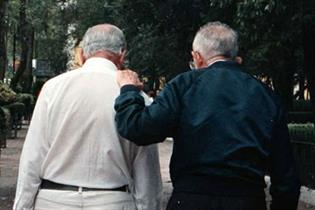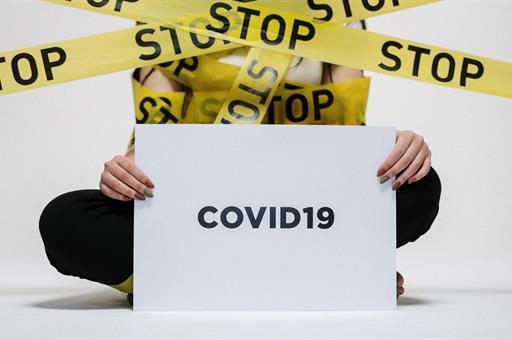Public Health Committee agrees on measures to combat COVID-19 at Easter, which it will pass on to Inter-territorial Council for its ratification
News - 2021.3.4
The measures will be taken to seek to limit mobility and personal contact. Accordingly, on a general basis, the recommendation will be not to lower the level of alert the regions are in during the two weeks prior to the start of Easter, even though the indicators may be positive, and thus maintain the measures established at that time.
As regards mobility, it was agreed to avoid all those trips that are not necessary, specifying that mobility will be limited to the closure of the borders of all the regions, with the exception of those cases regulated in the state of emergency under Royal Decree 926/2020, in which case a PDIA [Diagnostic Test for Active Infection] will be recommended before or on arrival.
The same document indicates, and this has been agreed, that mass events will not be held that imply large gatherings. And specifically, at events in closed spaces, the rules on capacity and other measures established must be adhered to, according to the level of alert in each region.
The general measures also include limitations on meetings in public or private spaces to a maximum of four people outside or inside, and a mobility curfew between 10 pm and 6 am.
The document includes the recommendation to expressly advise against holding social events at home or in other closed spaces with people other than those cohabiting. In addition, an institutional campaign should be undertaken to avoid a relaxation of conduct, using the slogan, "We are not saving weeks but lives".
Measures at care homes for the elderly
 The Public Health Committee also approved the document entitled, "Adaptation of measures in care homes for the elderly and other residential social services centres within the framework of vaccinations". This document explains that "residents, workers and families should be informed that, although there is a significantly lower risk of suffering from COVID-19 following vaccination, the risk does not completely disappear since the vaccine does not guarantee the full protection of those vaccinated".
The Public Health Committee also approved the document entitled, "Adaptation of measures in care homes for the elderly and other residential social services centres within the framework of vaccinations". This document explains that "residents, workers and families should be informed that, although there is a significantly lower risk of suffering from COVID-19 following vaccination, the risk does not completely disappear since the vaccine does not guarantee the full protection of those vaccinated".
Hence, "compliance with hygiene and preventive measures should continue to be guaranteed, such as the use of a face mask, frequent hand washing and maintaining social distancing, as well as adequate ventilation". Accordingly, group activities and the use of common spaces inside the centre will be allowed, while ensuring compliance with the previous point and maintaining the surveillance measures contained in the Contingency Plans". In general, there is no recommendation to carry out periodic screening of residents or perform blood tests to verify the efficacy of the vaccinations.
As regards visits, trips out and admissions, "the visit and trip out regime will be made more flexible with an individual assessment of each resident and of each care home", and "the location and organisation of visits, their supervision or not, and the number of visitors, as well as the organisation and duration of trips out will be arranged by the competent authority, always guaranteeing suitable preventive measures".
On a general basis, a PDIA test will not be performed before leaving and upon arrival for those residents that have been vaccinated. If the resident has not been vaccinated and in certain situations when advisable, a PDIA test will be performed taking into account the profile of the trip out (duration, activities undertaken …) and the epidemiological situation of the place they visit. Upon their return, their symptoms will be actively monitored and preventive measures will be implemented, proceeding to preventive isolation and an immediate PDIA test in the event of any suspected symptom of COVID-19.
In terms of new admissions, vaccination will be ensured with sufficient notice and for urgent admissions and precautionary measures will be implemented until the full vaccination process has been completed. The performance of a PDIA test will be considered in this case when admitted.
Workers at residential centres
This document actively recommends the vaccination of new workers, and thus not starting work at a care homes until having completed the vaccination cycle, unless strictly necessary. In this case, vaccination should be scheduled as quickly as possible and all precautionary measures taken until completing the vaccination cycle.
On a general basis, periodic screening among vaccinated workers is not recommended, although each regional authority, depending on its epidemiological situation, may consider screening as an option. However, after holiday periods and other prolonged absences, particularly if the vaccination cycle has not been completed, it is recommended to perform PDIA testing.
Furthermore, should suspicious cases arise of a vaccinated resident or worker be detected, said person should be isolated until obtaining the PDIA result. If the result is positive, the person in question should be isolated and close contacts should undergo a PDIA test and go into quarantine, in accordance with the provisions of the Early Detection, Surveillance and Control of COVID-19 Strategy along with separation into stable bubbles that facilitate the development of care home provision and the tracing of cases. In addition, those residents not vaccinated should be particularly protected, by placing them in individual rooms, if possible.
The visit and trip out regime of residents who are not in isolation should be maintained with normality in general, although it may be adapted according to the assessment of those responsible for public health and the epidemiological situation and structure of each centre.
Non official translation





